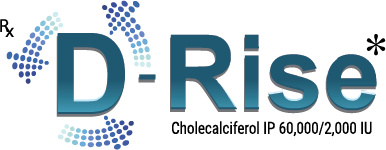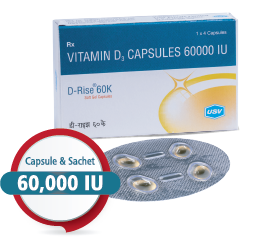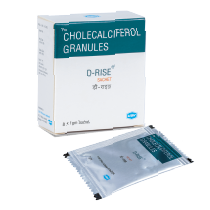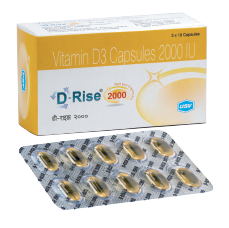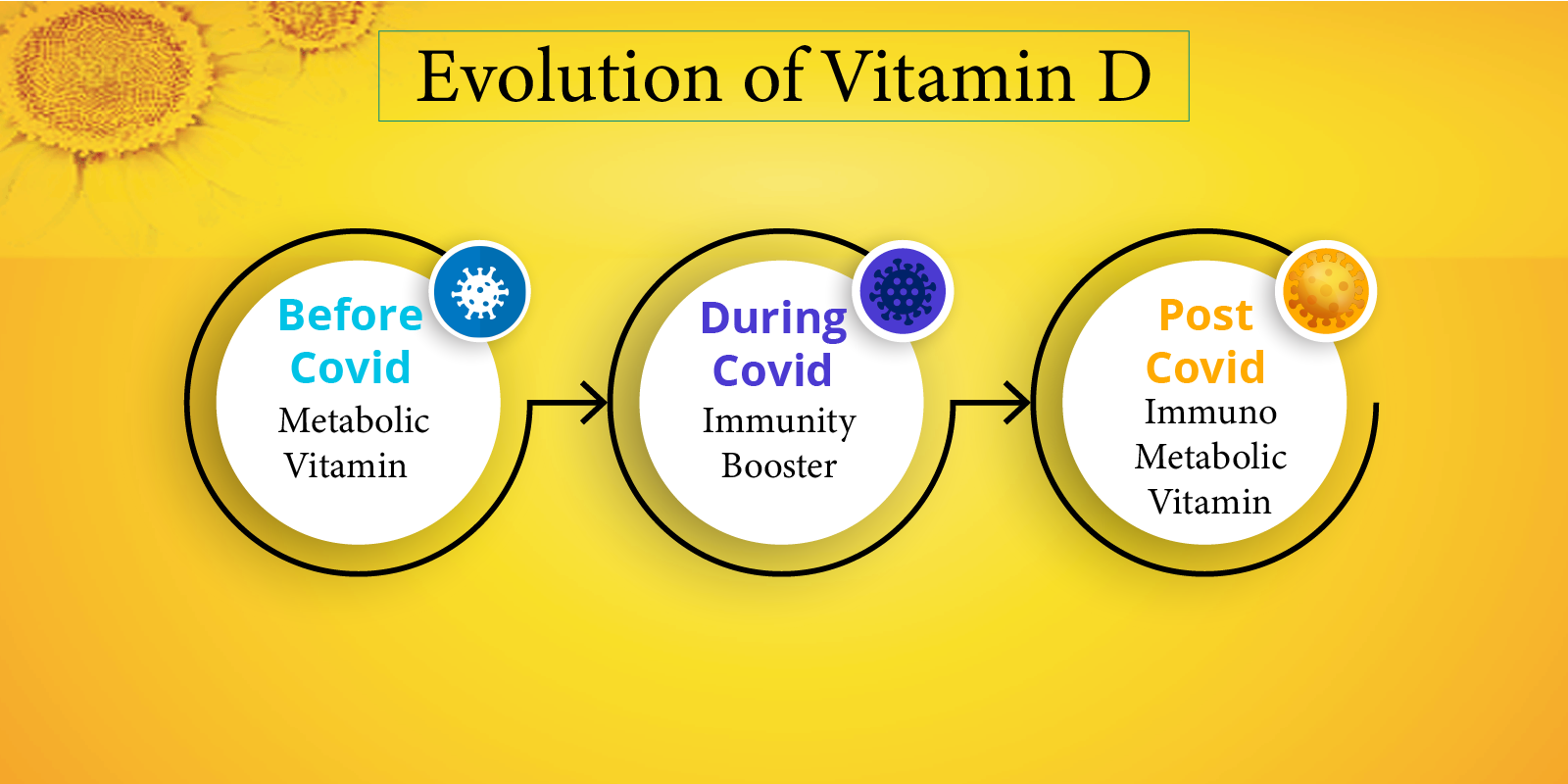
The absorption efficiency of vitamin D3 in D-rise is found up to 99 %8,9

D- Rise is made with Arachis oil (Peanut oil), the Vitamin D carrier, which is directed through passive diffusion.
Vitamin D plays a pivotal role in promoting innate immune response and it can potentially contribute to the treatment of:
Absorption7
Vitamin D undergoes two conversion steps before reaching the biologically active form. The first step is conversion to calcidiol, or 25(OH)D, in the liver. The second is conversion to calcitriol, or 1,25(OH)2D, which occurs in the kidneys, the immune system, and elsewhere. Calcitriol is the active, steroid-hormone form of vitamin D, which binds with vitamin D receptors found in most cells in the body. Vitamin is known to have multiple functions, including an important role in the immune system.

Vitamin D in COVID-19
Vitamin D supplementation helps in viral clearance of SARS CoV-2 infections3
Evidences from Indian Study
Shade study points that high dose Vitamin D supplementation is associated with3
- Greater proportion of RNA negative
- Significant decline in fibrinogen
- Safe- No incident of hypercalcemia.
Vitamin D reduces the inflammatory markers associated with COVID-19 without any side effects.17
Another randomized study highlights that low Vitamin D level is an independent risk factor for
- Acquiring COVID-19 infection
- Hospitalization
- COVID-19 related mortality
Vitamin D in Other Infections
1. Vitamin D in Diabetes2
Vitamin D regulates insulin sensitivityVitamin D:
- Stimulates the expression of insulin receptors
- Promotes the expression of peroxisome proliferator-activated receptor (PPAR) delta
- Regulates the function of calbindin
- Restores glucose-stimulated insulin secretion and promotes β-cell survival
2. Vitamin D in Cardiovascular Disease5
Vitamin D reduces the risk of CVD such as coronary artery disease (CAD), myocardial infarction (MI), hypertrophy, cardiomyopathy, fibrosis, heart failure (HF). The several Cardiovascular effects of Vitamin D includes:- Anti-hypertrophic properties.
- Inhibition of cardiomyocyte proliferation.
- Stimulation of vascular smooth muscle cell proliferation.
- Expression of vascular endothelial growth factor.
- Inhibition of both the renin–angiotensin–aldosterone system (RAAS)
- Natriuretic peptide secretion.
3. Vitamin D in Atherosclerosis
Vitamin D has a protective effect on the endothelial cells by reducing endoplasmic reticulum stress and oxidative stress thereby reducing the risk of atherosclerosis.
4. Vitamin in Heart Failure
Vitamin D reduces inflammatory cytokines, such as TNF-a, interleukin (IL)-6, and IL-1beta (IL-1b), which are known to be involved in mediating Heart Failure.
5. Vitamin in Respiratory Tract Infection
Various reasons for the protective action of vitamin D in prevention of respiratory tract infections includes:
- Vitamin D increases the production of natural antibodies.
- Vitamin D strengthen the immunity by inducing monocyte differentiation and inhibiting lymphocyte proliferation
- Vitamin D enhances the phagocytic activity of macrophages
Dosage
| Duration | Dosage |
|---|---|
| 8 weeks | 60,000 IU daily |
| As maintenance dose | 2,000 IU Daily |
| Serum Vitamin D level to be checked after 8-12 weeks post supplementation with D. | |
Maintenance Dose in COVID-1918
| Indications | Dosage |
|---|---|
| Prevention | 4000 IU for 45 days |
| Treatment | 4000 IU per day in OPD patients for 45 days |
